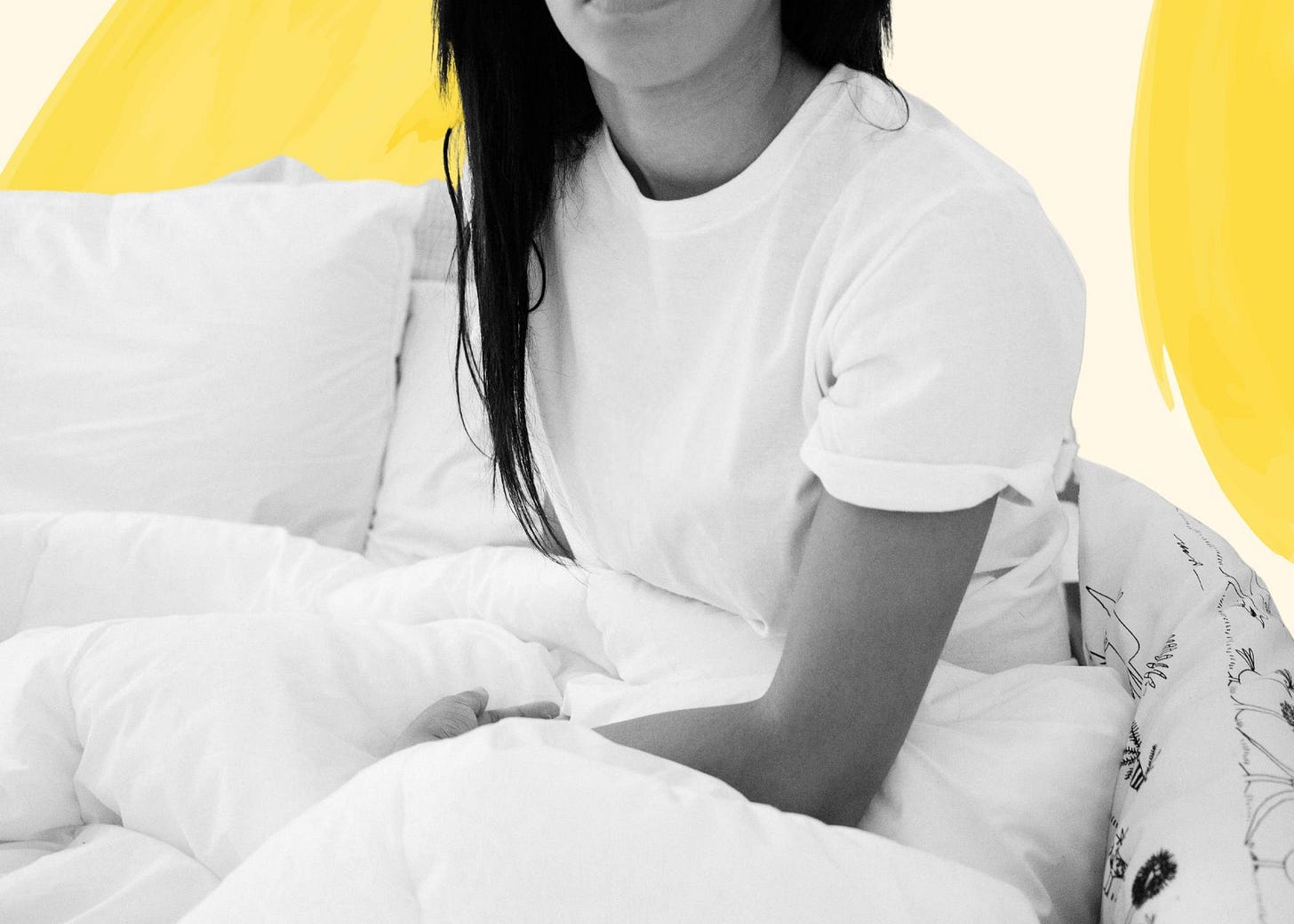Issue #62: Does the sleep 'trend' do more harm than good?
An insomnia therapist says a basic need has been turned into a Should – and it’s keeping us up at night.
Hello! This edition is the second half of our two-part January Blues special. You can read the first, exploring 12 practical ways to reset after a period of feeling rubbish, here. For this week’s essay, I’ve been thinking about sleep. This *might* not seem like the first thing you associate with mental health, but maybe it should be. Last month, the American Psychological Association published a landmark report based on 50 years of research into the interrelation between lack of sleep and poor emotional functioning (including reduced happiness, lowered mood and higher anxiety). Over the past decade, we’ve been through a so-called ‘Sleep Revolution’ (as it was coined by Arianna Huffington) – but has it actually helped us sleep better? I also want to introduce you to the therapist who changed the way I sleep, and to share how her compassion-based approach remedied my insomnia.
‘Without sleep, I can’t function,’ you’ll often hear someone claim. But that's not exactly true, is it? You can function without much sleep, in the zombified way new parents are forced to: one foot in front of the other, Colgate-on-brush, nodding your way through a Zoom meeting. But, without sleep, what’s much harder – impossible, even – is to thrive. It’s like watching a film with the volume turned slightly too low, the colours muted, the screen affected by an external glare. You’re unable to follow the plot, to get the jokes, or to tear up at the climactic moments.
That’s what Arianna Huffington got right in 2011, when she delivered a TED Talk entitled ‘How to succeed? Get more sleep’, prompting what was, at the time, an unprecedented spike in Google searches for ‘Sleep’. Huffington rebuffed the tendency she’d observed, among her male peers, to uphold sleep deprivation as a ‘virility symbol’. She joked: ‘Women… we are going to sleep our way to the top.’
‘Sleep, a basic need, has been put on a pedestal. It’s been idolised, in the same way we’ve treated fitness and nutrition in the past – and we punish ourselves if we don’t do it perfectly.’
- Dr Kat Lederle
Noughties gender wars aside, Huffington’s four-minute-long speech marked the beginning of a cultural shift that’s still going on today. By the time that her book, The Sleep Revolution, came out in 2016, sleep-related searches were higher than ever.
Once upon a time, getting by on little sleep was a humble brag, not least among British Prime Ministers for whom a Thatcherite four hours became a badge of honour. Nowadays, you’re more likely to humble brag about getting a full eight hours – and a lunchtime nap. And you have the sleep tracker data to back it up, too.

But does this mean we get more sleep than we used to? Hard to quantify. Research published in 2015 found that, despite popular beliefs to the contrary, sleep duration among global adult populations had actually remained consistent over the past few decades. More recently, some sources have claimed we’re still in thrall to so-called coronasomnia.
That’s before you get into the realm of newly-coined terms like sleep hygiene or clean sleep. Plus, the scientific terms that have become everyday jargon: REM sleep, deep sleep, biphasic sleep patterns. In a 2022 report conducted by Nuffield Health, 74% of UK adults reported a decline in sleep quality over the past 12 months. But would we formerly have had the vocabulary, the FitBit data, to even worry about sleep quality? Not before we took a global crash course in it. Case in point: searches for ‘REM sleep‘ almost doubled between March and May 2017.
The question I’m getting at: is the sleep ‘trend’ actually helpful? I ask this as a lifelong insomniac, who’s struggled to hide my jealousy towards the nap-happy, ‘I love my bed’ brigade. Yet, I do so on behalf of anyone who, for whatever reason, has ever struggled with sleep difficulties – especially if you’ve then gone and blamed yourself for not fitting in with the zzz-zeitgeist.
Does our popular fixation on sleep = more sleep for everyone, or is it more complicated than that?
Keep reading with a 7-day free trial
Subscribe to The Shoulds by Francesca Specter to keep reading this post and get 7 days of free access to the full post archives.





